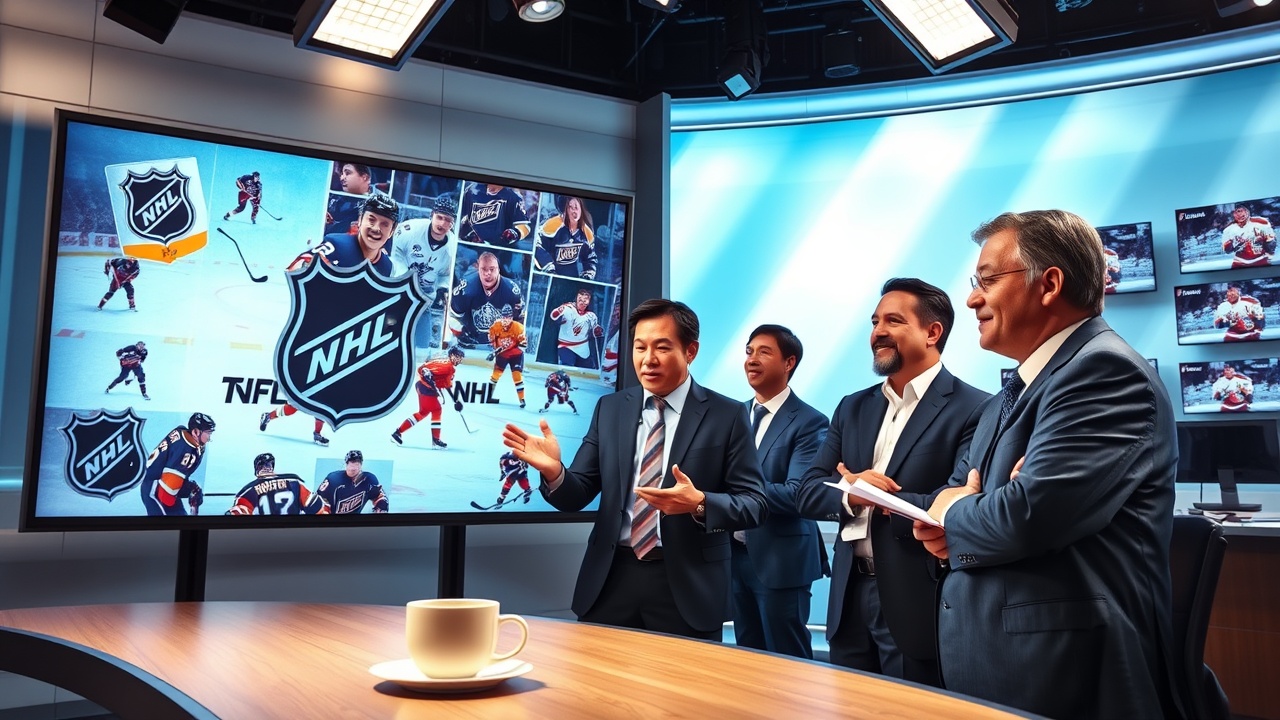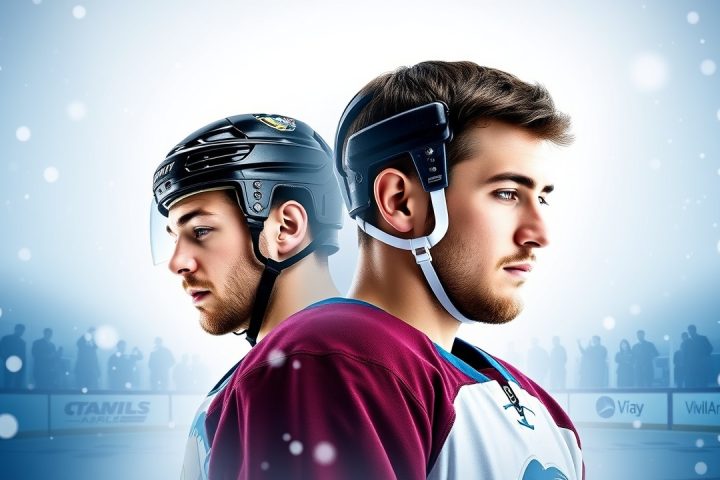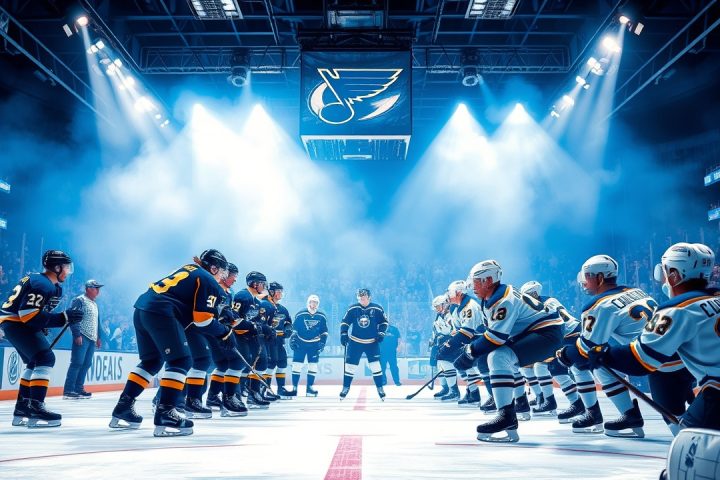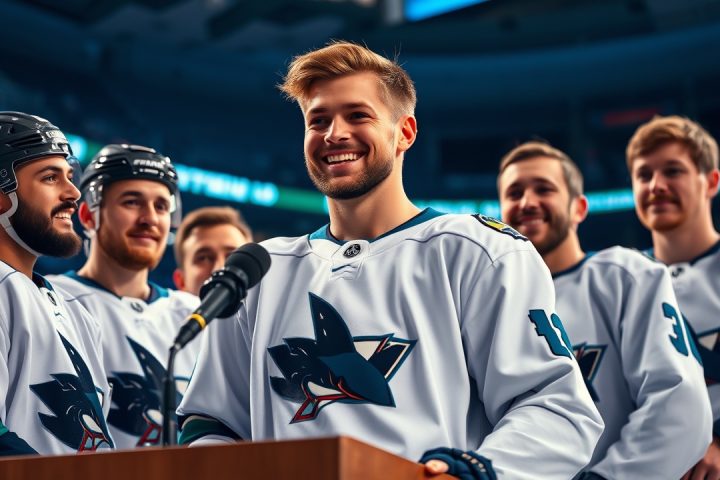Trading Coaches: An Outdated Practice in the NHL
In the world of the NHL, the concept of trading coaches is an outdated practice. The league once permitted such moves, notably in 1987 when Phil Esposito, then GM of the New York Rangers, made headlines by exchanging a first-round draft pick for head coach Michel Bergeron from the Quebec Nordiques. This unconventional trade proved unsuccessful, as Bergeron lasted under two seasons with the Rangers, prompting the league to disallow such transactions.
Nowadays, coaches are considered untouchable assets, but that doesn’t mean imaginative deals—of a non-traditional kind—aren’t being proposed. As the gap between Stanley Cup Final games stretches, fans have taken to brainstorming their own absurd trade ideas, even involving non-tradable assets. In a nod to this unusual form of banter, I invited readers to submit their wildest “who says no?” trade proposals. The results ranged from the ridiculous to the unexpectedly insightful.
Absurd Trade Proposals from NHL Fans
Take, for instance, the Toronto Maple Leafs, known for needing more grit on their roster. They have stated a desire to alter their team culture despite the potential sacrifice of skill. One proposed deal involved sending Carlton the Bear, the Leafs’ mascot, to Edmonton in exchange for Hunter—an edgier mascot. Leafs fans suggest this swap could infuse the team with more toughness. But would Edmonton truly benefit from the mascot upgrade, or would the disruption of team synergy deter such a change? Even children of noted NHL experts weighed in, leading to a consensus that the Oilers aren’t willing to support this mascot migration.
Another intriguing proposition pitted the Pittsburgh Penguins against the Carolina Hurricanes. The idea was for Pittsburgh to trade the rights to the iconic goal song “Brass Bonanza” for something out of the ordinary—exclusive naming rights to Carolina’s star, Sebastian Aho. Though this deal initially appears skewed in favor of Pittsburgh, there’s a case to be made for the Hurricanes to embrace a fresh start by shedding the nostalgic Whalers theme—a compromise on a contentious topic among their fanbase. This trade could feasibly benefit both teams, and it stands out as one of the more coherent proposals.
Other Unique Suggestions and Nostalgia
On a different note, a ludicrous suggestion surfaced involving the Professional Women’s Hockey League (PWHL) trying to trade a variety of esteemed trophies to the NHL in exchange for expansion and growth opportunities. This trade, which resembles a classic trading blunder of undervaluing key assets, was promptly deemed unacceptable by the PWHL, further highlighting the disparities in value perceptions.
The suggestions continued with trades aligning sports history across leagues, like a supposed deal where St. Louis would receive its past Stanley Cup runs, while Los Angeles would net accolades from their football franchise—the Rams. Meanwhile, the Buffalo Sabres’ fans campaigned for a way to offload owner Terry Pegula, proposing a trade that ultimately didn’t garner interest from Arizona.
Amidst all these imagined swaps, fans expressed sentiment for nostalgia-fueled proposals, with one illustrating a desire for the return of Minnesota North Stars branding to the state. However, the Dallas Stars would hesitate to part with that identity without securing fairness in return—a sentiment that permeates a lot of these pretend deals.
Trading Historical Victories and Fan Sentiment
Eventually, the conversation veered into trading historical victories—for instance, dealing the Maple Leafs’ 1951 Stanley Cup for the Canucks’ 2011 playoff run. While on the surface, it makes sense for Vancouver to want a Cup win, they would be giving up beloved memories tied to their playoff performance runs, a point not to be overlooked.
This playful exchange of ideas strikes at the heart of what makes sports fandom so vibrant. The proposed trades, while impossible in reality, serve as a reminder of the passion and creativity that fans bring to the sport, highlighting how the love for the game often transcends the confines of reality.
Ultimately, even in the creative space of hypothetical discussions, there remains a vivid awareness of how history and sentiment color these exchanges—both in how fans perceive star players and cherished memories.




